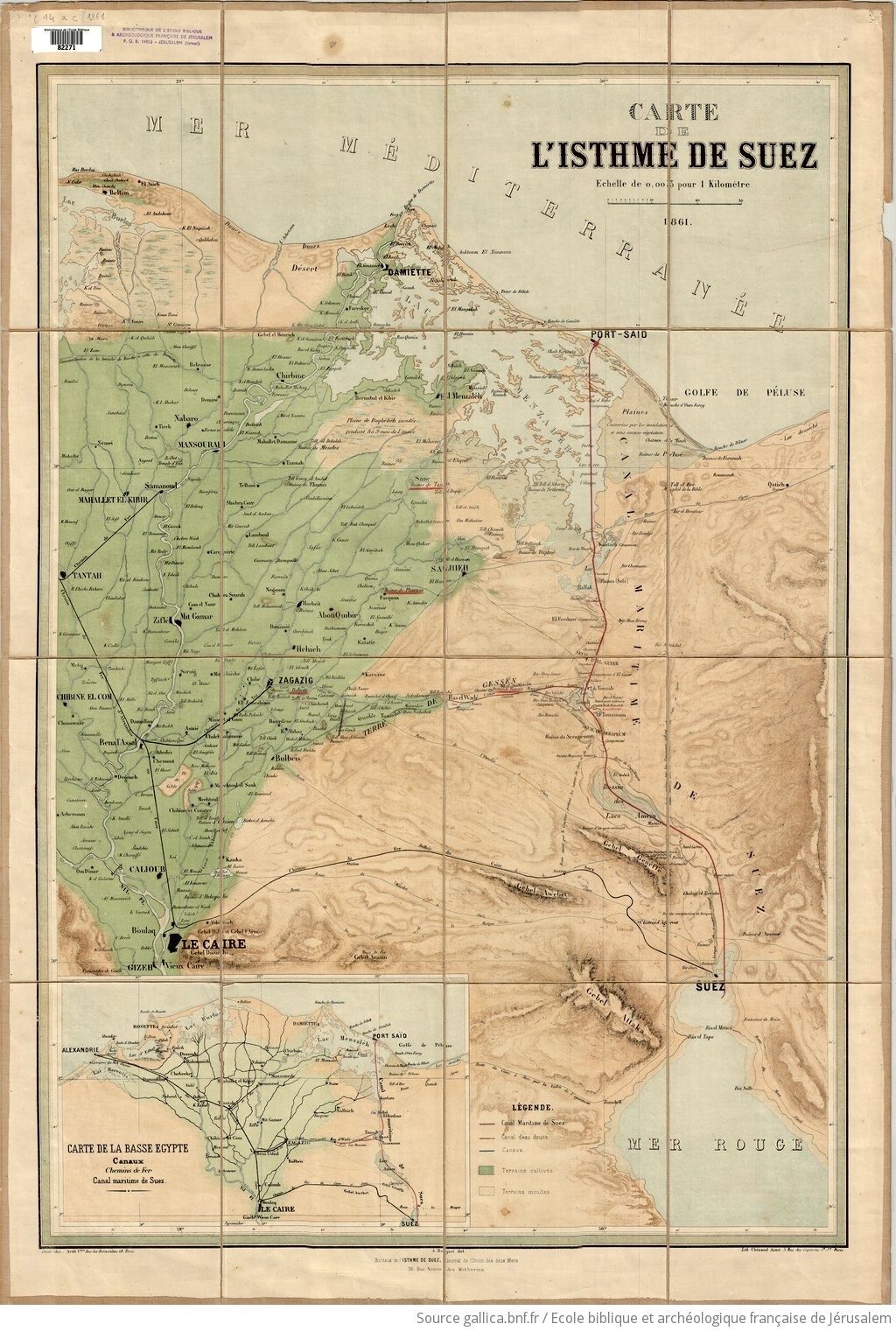The Suez Canal: Geopolitical History and Military-Strategic Significance (second half of the XIXth - the first half of the XXth centuries
Research Article
Views: 422 / PDF downloads: 4 / PDF downloads: 2DOI:
https://doi.org/10.32523/3080-129X-2025-150-1-84-108Keywords:
Egypt, Suez Canal, geohistory, geostrategy, interest, colonial policy, diplomacy, Great Britain, nationalizationAbstract
The processes of globalization that began in the 19th century brought the issue of shortening transportation routes to the forefront. As the continents converged, the idea of shortening sea routes through the creation of artificial canals gained significant attention. The Suez Canal is one of these geostrategic nodes. It is a crossroads of regional, national and international political and economic interests. It can be seen not just as a trade artery, but as a symbol connecting East and West. This article, within the framework of the paradigm of geo-history, analyzes the geopolitical factors and historical processes that determined the military-strategic importance of the Suez Canal in the 19th and 20th centuries. Based on archival documents, the study examines the historical events that served as prerequisites for the formation of the international legal regime of the Suez Canal. The construction of the canal is seen as an example of one of the first transnational projects implemented not by nation-states but by a private corporation founded by Ferdinand de Lesseps. This approach makes it possible to analyze the creation of the Suez Canal from the perspective of modern economic trends, where the primary influence comes not from individual states but from the financial power of transnational corporations. Special attention is given to the strategic significance of the canal and issues of maintaining its neutrality during World War I, the Ottoman Empire’s attempts to seize control of this strategic asset, and the interests of Italy and Germany in the Suez Canal during World War II. The study identifies the key motives and actions of the United Kingdom in the 1940s and 1950s aimed at preserving its positions in the Suez Canal region. The Suez Canal, which served as a vital communication route for the British Empire in the 19th century, continued to fulfill its function during the world wars, facilitating the passage of ships despite numerous threats and aerial bombardments. At the same time, the canal zone functioned as a defensive area and a crucial military base where Allied troops were trained. The construction of the canal was a significant factor in Egypt’s modernization along European lines. From the outset, the Suez Canal possessed enormous modernization potential, which was fully realized through military, educational, cultural, and economic reforms. Its construction played a crucial role in the development of global trade and economic relations and served as a key mechanism for geopolitical transformations.
Downloads
References
Bonin H. History of the Suez Canal Company: 1858 – 1960 between controversy and utility. Geneve: Droz. 2010. 573 р. (in English) DOI: https://doi.org/10.3917/droz.bonin.2010.01
Bonin H. Suez: Du canal a la finance (1858-1987). Paris: Economica. 1987. 296 р. (in French).
Bilici F. Le canal de Suez et l’Empire ottoman. Paris: CNRS Éditions. 2019. 313 р. (in French).
Braudel F. The Mediterranean and the Mediterranean world in the age of Philip II. University of California Press. 1995. 719 р. (in English)
Curli B. Italy and the Suez Canal: Historical and Historiographical Passages from a Euro-Mediterranean Perspective. In: Italy and the Suez Canal, from the Mid-nineteenth Century to the Cold War. Curli, B. (eds). Palgrave Macmillan, Cham. 2022. 448 р. (in English). DOI: https://doi.org/10.1007/978-3-030-88255-6
Chorev S. The Suez Canal: Forthcoming Strategic and Geopolitical Challenges. In: The Suez Canal: Past Lessons and Future Challenges. Ed. by C. Lutmar, Z. Rubinovitz. Cham: Palgrave Macmillan. 2023. Рр.29-52. (in English) DOI: https://doi.org/10.1007/978-3-031-15670-0_1
Сınar M. Geopolitics of the Suez Canal from Past to Present. Ankara: Iksad Publications. 2022. (in Turkish)
D'Agostino Orsini Di Camerota Paolo. L'Italia nella politica africana. Bologna Licinio Cappelli. in-8, 1926. (in Italian)
Farnie D.A. East and West of Suez: The Suez Canal in History, 1854-1956. Oxford: Oxford University Press. 1969. 860 р. (in English)
Fattah S. The New Suez Canal - A Step into the Future” Cairo: ar ahb al yawma. 2015. (in Arabic)
Hafnawi M. The Suez Canal and Contemporary Problems. Cairo: Dar al Maarif. 1956. (in Arabic)
Halberg C. The Suez Canal: its history and diplomatic importance. London: Octagon Books. 1974. 434 р. (in English)
Huber V. Connecting colonial seas: the ‘international colonisation’ of Port Said and the Suez Canal during and after the First World War. European Review of History: Revue Européenne d’histoire. 2012. Vol.19(1), рр.141-161. https://doi.org/10.1080/13507486.2012.643612 (in English) DOI: https://doi.org/10.1080/13507486.2012.643612
Marlowe J. Anglo-Egyptian Relations 1800–1953. London: Cresset Press. 1954. 440 р. (in English)
Mahan A. The Influence of Sea Power upon History, 1660-1783. Cambridge University Press. 2010. 640 р. (in English) DOI: https://doi.org/10.1017/CBO9780511783289
Nye J. Soft power: the means to success in world politics. New York: Public Affairs. 2004. (in English)
Piquet C. Histoire du canal de Suez. Paris: Perrin. 2009. 384 р. (in French)
Piquet C. The Suez Company’s Concession in Egypt, 1854-1956: Modern Infrastructure and Local Economic Development. Enterprise and Society. 2004. Vol.5(1), рр.107-127. https://doi.org/10.1093/es/khh005 (in English) DOI: https://doi.org/10.1093/es/khh005
Schonfield H. The Suez Canal in peace and war 1869-1969. FL.: University of Miami Press. 1969. 214 р. (in English)
Wilson T.A. The Suez Canal: its past, present, and future. Oxford: Oxford University Press. 1939. 224 р. (in English)
Alipbekova G., Turekulova Zh. ХІХ-ХХ ғ. soңy –KhKh ғ. bіrіnshі zhartysyndaғy «Mұsylman bauyrlar» қozғalysy құryluynyң tarikhi alғysharttary zhәne negіzgі ideialary. Herald of Abai Kazakh National Pedagogical University. Series: Historical and Socio-Political Sciences. 2024. Vol.1(80), рр.134-143. https://doi.org/10.51889/2959-6017.2024.80.1.013 (in Kazakh) DOI: https://doi.org/10.51889/2959-6017.2024.80.1.013
Nersesov G. Diplomaticheskaia istoriia egipetskogo krizisa, 1881-1882 gg.: V svete russkikh arkhivnykh materialov. Moscow: Nauka. 1979. 320 p. (in Russian)
Haushofer K., Ratzel F. Teoriia «zhiznennogo prostranstva». Moscow: Algoritm. 2019. 240 p. (in Russian)

Downloads
Published
Issue
Section
License
Copyright (c) 2025 K. Baytureyeva, Zh. Turekulova, V. Sultanova

This work is licensed under a Creative Commons Attribution-NonCommercial-NoDerivatives 4.0 International License.















